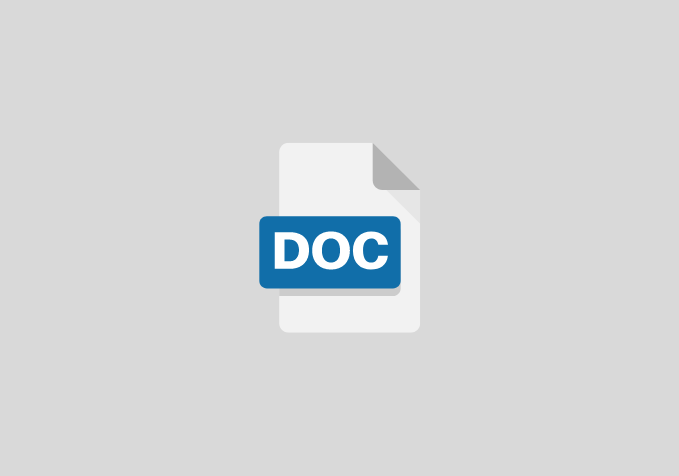The Factors Affecting the Effective Performance of Extension Workers in Karim Lamido Local Government, Taraba State
Chapter One
OBJECTIVE OF THE STUDY
The objectives of the study are;
- To ascertain factors affecting performance of extension workers in Karim lamido local government of Taraba state
- To ascertain the effect of extension workers to Kaim Lamido local government workers
- To ascertain the relationship between extension workers and farmers’ performance in karim lamido local government of Taraba state
Chapter Two
Review of the Related Literature
Introduction
Agricultural research primarily generates or develops new and appropriate agricultural technologies and management practices, extension introduces these agricultural innovations to as many farmers as is practicable, and facilitates adoption of same, with a view to increasing agricultural productivity, as well as, social and economic progress. To achieve this, the extension organization seeks for employees who are competent in, at least, five different areas (Chauldry and Al-Haj 1985), namely, technical competency or level of knowledge and understanding which an extension worker must possess relevant to the crops and livestock the farmer produces; economic competency, or the ability to weigh alternative productive input and output strategies to determine whether the adoption of the new idea is advantageous; science competency or an understanding of the philosophy of science and the ability to conduct simple field experiments to test an innovation and assess results objectively. Others are farming competency or the willingness and skills to perform physical tasks involved in producing a specific crop or animal using an innovation and communication competency, or the ability to specify and coordinate specific behavioural objectives for the relevant clientele whose behaviour is to be changed
The Training and Visit (T and V) extension management system (Benor and Harrison 1984) in Nigeria ensures that extension agents receive training, and visit farmers regularly to transmit messages that are relevant to farmer’s production, processing, storage, as well as home management. The system is such that the Agricultural Development Projects (ADPs) in the various States of the federation collaborate and share responsibilities with universities, research institutes and private sector input agencies, adopting the following procedures and activities/ strategies: Farming Systems Research and Extension (FSRE), On-farm Adaptive Research (OFAR), Small Plot Adaptive Trials (SPAT) and Research-Extension-Farmer-Input/Marketing Linkage System (REFILS). Private agencies such as the Shell Petroleum Development Company (SPDC) Nigerian Tobacco Company (NTC) and religious organizations also embarked on extension work.
References
- King R. G., and Rebelo S. (1990). “Public Policy and Economic Growth: Developing Neoclassical Implications.” Manuscript. Rochester, N.Y.: Univ. Rochester, 1990.
- Levine R. (2004). “Finance and Growth: Theory and Evidence”, National Bureau of Economic Research (NBER), Working Paper 10766 (September), 1050 Massachusetts Avenue, Cambridge, MA 02138
- Lucas R. E., “On the Mechanics of Economic Development,” Journal of Monetary Economics, 22, 1988: 3-42.
- McKinnon R. I., (1973). Money and Capital in Economic Development, (Washington: The Brookings Institution)
- Ngama Y. L. (2013). “Financing infrastructure through the capital market” at the infrastructure roundtable, 2013 in financing Nigeria’s Infrastructure: A case in Favour of Capital Market by Iheanyi Nwachukwu (http://businessdayonline.com/2013/08/financing-nigerias-infrastructure-acase-in-favour-of-capital-market/)
- OECD, (2011). “International Futures Programme Project on Strategic Transport Infrastructure to 2030: Pension Funds Investment in Infrastructure a Survey”, September 2011, OECD.
- Pagano M. (1993). “Financial markets and growth: An overview, European Economic Review 37 (1993) 613-622. North-Holland Penn State University, University Park, PA 16802, http://econ.la.psu.edu/~bickes/endogrow.pdf
- Radwan I. (2010). “Financial Sector Liberalisation and Challenges of Real Sector Financing in Nigeria: The World Bank Perspective”, Economic and Financial Review (EFR), Vol. 48. No.4, December 2010, CBN.
- Rebelo S., “Long-Run Policy Analysis and Long-Run Growth,” Journal of Political Economy, 99, No. 3 (Jun., 1991), 500-521.
- Robert G. King and Ross Levine. (1993). “Finance, Entrepreneurship, and Growth: Theory and Evidence” Journal of Monetary Economics 32 (1993) 513-542. North-Holland Romer P., “Increasing Returns and Long-Run Growth,” Journal of Political Economy, 94, 1986, 1002-1037.


